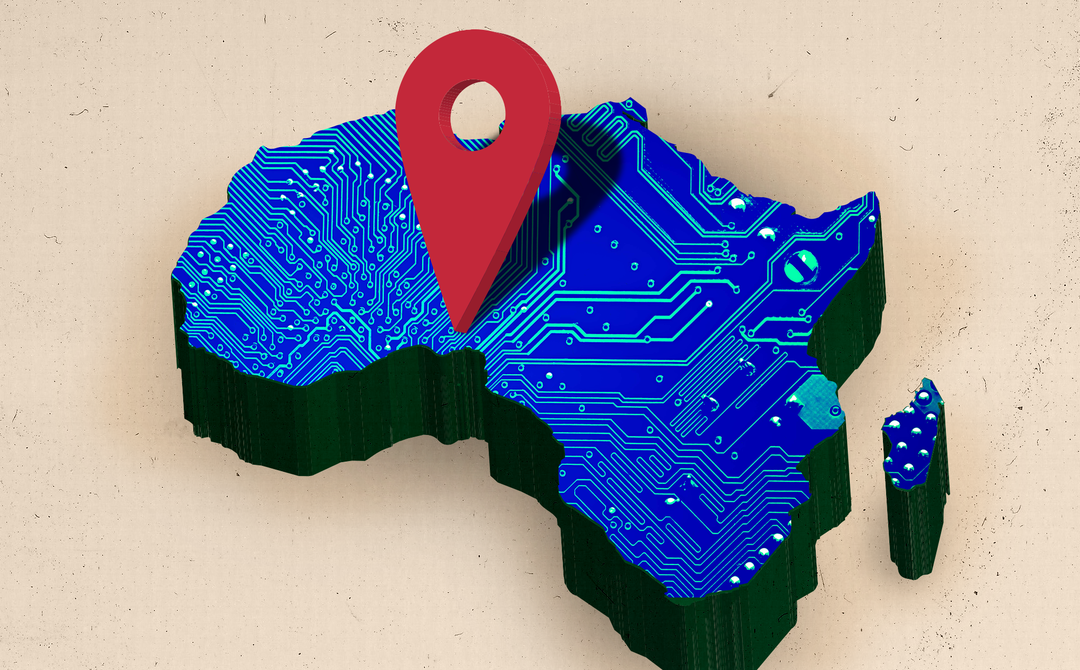
by crissly | Dec 14, 2023 | Uncategorized
A little over three years have passed since McDonald’s sent out an email to thousands of its restaurant owners around the world that abruptly cut short the future of a three-person startup called Kytch—and with it, perhaps one of McDonald’s best chances for fixing its famously out-of-order ice cream machines.
Until then, Kytch had been selling McDonald’s restaurant owners a popular internet-connected gadget designed to attach to their notoriously fragile and often broken soft-serve McFlurry dispensers, manufactured by McDonalds equipment partner Taylor. The Kytch device would essentially hack into the ice cream machine’s internals, monitor its operations, and send diagnostic data over the internet to an owner or manager to help keep it running. But despite Kytch’s efforts to solve the Golden Arches’ intractable ice cream problems, a McDonald’s email in November 2020 warned its franchisees not to use Kytch, stating that it represented a safety hazard for staff. Kytch says its sales dried up practically overnight.
Now, after years of litigation, the ice-cream-hacking entrepreneurs have unearthed evidence that they say shows that Taylor, the soft-serve machine maker, helped engineer McDonald’s Kytch-killing email—kneecapping the startup not because of any safety concern, but in a coordinated effort to undermine a potential competitor. And Taylor’s alleged order, as Kytch now describes it, came all the way from the top.
On Wednesday, Kytch filed a newly unredacted motion for summary adjudication in its lawsuit against Taylor for alleged trade libel, tortious interference, and other claims. The new motion, which replaces a redacted version from August, refers to internal emails Taylor released in the discovery phase of the lawsuit, which were quietly unsealed over the summer. The motion focuses in particular on one email from Timothy FitzGerald, the CEO of Taylor parent company Middleby, that appears to suggest that either Middleby or McDonald’s send a communication to McDonald’s franchise owners to dissuade them from using Kytch’s device.
“Not sure if there is anything we can do to slow up the franchise community on the other solution,” FitzGerald wrote on October 17, 2020. “Not sure what communication from either McD or Midd can or will go out.”
In their legal filing, the Kytch cofounders, of course, interpret “the other solution” to mean their product. In fact, FitzGerald’s message was sent in an email thread that included Middleby’s then COO, David Brewer, who had wondered earlier whether Middleby could instead acquire Kytch. Another Middleby executive responded to FitzGerald on October 17 to write that Taylor and McDonald’s had already met the previous day to discuss sending out a message to franchisees about McDonald’s lack of support for Kytch.
But Jeremy O’Sullivan, a Kytch cofounder, claims—and Kytch argues in its legal motion—that FitzGerald’s email nonetheless proves Taylor’s intent to hamstring a potential competitor. “It’s the smoking gun,” O’Sullivan says of the email. “He’s plotting our demise.”

by crissly | Nov 18, 2023 | Uncategorized
Altman’s ouster shows an organization that was meant to align superintelligent AI with humanity failing to align the values of even its own board members and leadership. Adding a profit-seeking component to the nonprofit project turned it into an AI powerhouse. Launching products was supposed to provide not only profits but also opportunities to learn how to better control and develop beneficial AI. Now it’s unclear whether the current leadership thinks that can be done without breaching the project’s original promise to create AGI safely.
Murati faces the challenge of convincing OpenAI’s staff and backers that it still has a workable philosophy for developing AI. She must also feed the company’s hunger for cash to operate the expansive infrastructure behind projects like ChatGPT. At the time he was pink-slipped, Altman was reportedly seeking billions of new investment, in a funding round to be led by Thrive Capital. The company is undoubtedly less attractive to funders than it was only 24 hours ago. (Thrive’s CEO, Joshua Kushner, did not respond to an email.)
In addition, anyone whose CEO nameplate includes the tag “interim” will face additional hurdles in anything they do. The sooner OpenAI appoints a permanent leader, the better.
Starting Over
Whoever OpenAI’s new leader turns out to be, they look set to inherit a team riven by whether they stand with the current leaders, Sutskever and Murati, or the departed bosses, Altman and Brockman. One of the three researchers reported to have quit over the putsch was director of research Jakub Pachocki, a coinventor of GPT-4—a crucial loss, and we can expect more to follow.
OpenAI may now be at a severe disadvantage in the fierce race for AI talent. Top researchers are being secured by multimillion-dollar payment packages, but for the most passionate, money is a secondary consideration to the question of how more powerful AI is to be developed and deployed. If OpenAI is seen as a place ridden with palace intrigues that distract from deciding how best to create and disseminate humanity’s most consequential invention, top talent will be reluctant to commit. Elite researchers might instead look to Anthropic, an AI developer started by ex-OpenAI employees in 2021—or maybe whatever new project Altman and Brockman start.
Altman’s trajectory until now has been a classic hero’s journey in the Joseph Campbell sense. From the moment I first met him, when he came to my Newsweek office in 2007 as CEO of a startup called Loopt, he exuded a burning passion to fulfill technology’s biggest challenges and also a striking personal humility. When I accompanied him in London this year during his whirlwind tour to promote “human-positive” AI—and yet also recommend that it be regulated to prevent disaster—I saw him addressing crowds, posing for selfies, and even engaging a few protesters to hear out their concerns. But I also sensed that the task was stressful, possibly triggering one of his periodic migraine headaches, like the one he fought off when testifying before the Senate.
Just last week, Altman appeared to have mastered the prodigious challenges that came with his new power and prominence. At OpenAI’s developer day on November 6, he was confident and meticulously rehearsed as he introduced a raft of new products, laying claim to the technosphere’s ultimate peacock perch: a showman unveiling mind-bending advances in the mode of Steve Jobs. It seemed that Altman finally felt at home in the spotlight. But then the lights went out. Sam Altman will have to create AGI somewhere else. OpenAI may still be in the hunt—but only after it picks up the pieces.

by crissly | Apr 18, 2023 | Uncategorized
Asked to comment on the plans, Binance’s West & East Africa director Nadeem Anjarwalla said in a statement: “As we continue to support blockchain adoption across the African continent, Binance is keen to collaborate with the Nigeria Export Processing Zones Authority [the regulator overseeing the Lekki Free Zone] to establish a virtual free zone with the aim of generating long-term economic growth through digital innovation. We look forward to sharing key details when plans have been finalized.”
That a Nigerian government agency signed off on a crypto partnership at all is surprising. While Nigeria is one of the world’s biggest global marketplaces for crypto, ranking 11th overall in crypto research firm Chainalysis’ Global Crypto Adoption Index Top 20 in 2022, the country’s regulators have often been hostile. The Central Bank of Nigeria banned banks from enabling cryptocurrency transactions in February 2021.
Adesoji Adesugba, CEO of the Nigeria Export Processing Zones Authority, said in a statement that the partnership with Binance seeks to “engender flourishing Virtual Free Zones to take advantage of a near trillion-dollar virtual economy in blockchains and digital economy.”
“It’s clear that the world is going crypto,” says Edu. “And Nigeria can’t lock that door forever.” Incoming president Bola Ahmed Tinubu’s manifesto appears to echo this, saying that his administration will “reform government policy to encourage the prudent use of blockchain technology.”
While developing its digital infrastructure is Itana’s main preoccupation right now, building the physical city might not be simple, judging from the experience of nearby development projects. Eko Atlantic, a private city project built on sand “recovered” from the ocean outside of Lagos, has made faltering progress since 2009.
The Lekki Free Zone has itself been trailed by controversies over the alleged displacement of local communities to make way for the project. Local residents say more than a dozen villages in the Ibeju-Epe area, where the free trade zone was established, have been unilaterally reclaimed by the government, some to make way for a not-yet-operational oil refinery which started construction in 2016.
“They said they wanted to use the land for revenue purposes, that there was no refinery in Lagos state, so they were planning for our children,” Otunba Ladipo Olusanya Adeokun, a community leader of the Idashon Community in Ibeju Lekki, says. “What about us who will bear the children, are we not going to plan for our future? Where’s the money we are going to use to take care of our children?”
Communities around the free port area have limited access to power, while Lagos itself suffers from a crippling housing shortage. Building a new, high-end community like Itana isn’t likely to solve those problems in the near term.
“What I can tell is that it’s not going to be cheap,” says Yakubu Aliyu Bununu, lecturer in the Department of Urban and Regional Planning at Ahmadu Bello University, Nigeria.“If you look at the purchasing power of an average Nigerian, it’s going to take them years and years to be able to earn an income that would allow them to live in Eko Atlantic, or Alaro City, or any of the cities springing up in that area,” says Adunbi. (Alaro City, where Itana is due to be located, advertises residences priced from $65,950; the average yearly income for Nigerians was $2,080 in 2021.)
But Aboyeji says Itana’s goal isn’t to cloister the affluent in air-conditioned high-rises. “We’re not just trying to get together a bunch of opulent, rich people into a space, right? What we’re trying to do is pull together a productive young population.”
Right now, the 72,000-square-meter plot of land that will be Itana sits empty. What was once a swamp has now been filled in with orange sand, waiting for the first foundations to be laid. But, as Aboyeji insists, the project is all about potential, about being a vessel for the restless ambition of Nigeria’s tech scene.
“We’re not some foreigners that are trying to conquer Nigeria. We are Nigerians trying to figure out, within Nigeria, a place where we can operate our businesses and build for the world,” he says. “I think we will be giving a lot of lessons to the West on that.”

by crissly | Mar 13, 2023 | Uncategorized
Silicon Valley Bank’s struggles started with a bad bet on long-dated US bonds. Rising interest rates meant that the value of those bonds fell. As depositors started to worry about the bank’s balance sheet, they pulled their money out. High interest rates have become a challenge across the industry, ending the cheap loans that tech companies got used to over the past decade and reducing available funding.
More than $400 billion in value was wiped from Europe’s tech industry in 2022, while some companies, like the buy-now, pay-later provider Klarna, watched their valuation plunge more than 85 percent. This year there’s been little reprieve, as layoffs continue within local startups as well as at Europe’s big tech outposts. At the end of February, Google confirmed it would cut 200 jobs from its business in Ireland.
“The whole tech industry is suffering,” Warner says. “Generally, in 2023 rounds are taking much longer; there’s much less capital available.”
Against this backdrop it’s unclear whether any major European bank is able or willing to fill the niche that Silicon Valley Bank is leaving.
“Silicon Valley Bank is unique. There are not that many banks which provide startups loans,” says Reinhilde Veugelers, a senior fellow at economic think tank Bruegel and a professor at Belgian university KU Leuven. “Typically, European banks are not good alternatives, because they’re way too risk-averse.”
And even if a bank wanted to take the risk, they’d likely struggle to replicate Silicon Valley Bank’s deep knowledge of the startup ecosystem, Veugelers adds. “You need way more than deep pockets. You also need to be sufficiently close to the whole venture capital market and have the ability to do due diligence” she says. “If the bank had that capacity, it would have already been doing this.” HSBC did not immediately reply to WIRED’s request for comment.
Silicon Valley Bank was prepared to take risks that other banks wouldn’t, says Frederik Schouboe, co-CEO and cofounder of the Danish cloud company KeepIt.
KeepIt secured a $22.5 million debt financing package—a way of raising money through borrowing—last year from Silicon Valley Bank’s UK business. Although the bank opened an office in Copenhagen in 2019, the branch did not have a banking license. Mainstream banks “are ultimately impossible to bank with if you are making a deficit in a subscription business,” Schouboe says. “The regulatory environment is too strict for them to actually help us.”
The way Silicon Valley Bank operated in Europe has earned its admirers. But now those people are worried the company’s collapse will warn other banks away from funding tech in the same way. It was SBV’s banking practices that failed, not the business model of funding the startup sector, says Berthold Baurek-Karlic, founder and managing partner of Vienna-based investment company Venionaire Capital. “What they did was they made big mistakes in risk management,” he adds. “If interest rates rise, this shouldn’t make your bank go bust.”
Baurek-Karlic believes European startups were benefiting from the riskier bets that Silicon Valley Bank was taking, such as offering venture debt deals. The US and UK said Silicon Valley Bank is not system critical, arguing there was limited risk of contagion to other banks. That might be true in banking, he says. “But for the tech ecosystem, it was system critical.”

by crissly | Jun 16, 2022 | Uncategorized
In May, the venture capital firm Sequoia circulated a memo among its startup founders. The 52-page presentation warned of a challenging road ahead, paved by inflation, rising interest rates, a Nasdaq drawdown, supply chain issues, war, and a general weariness about the economy. Things were about to get tough, and this time, venture capital would not be coming to the rescue. “We believe this is a Crucible Moment,” the firm’s partners wrote. “Companies who move the quickest and have the most runway are most likely to avoid the death spiral.”
Plenty of startups seem to be taking Sequoia’s advice. The mood has become downright funereal as founders and CEOs cut the excesses of 2021 from their budgets. Most crucially, these reductions have affected head count. More than 10,000 startup employees have been laid off since the start of June, according to Layoffstracker.com, which catalogs job cuts. Since the start of the year, the tally is closer to 40,000.
The latest victims have been crypto companies, and the carnage is not small. On Tuesday, Coinbase laid off 1,100 employees, abruptly cutting their access to corporate email accounts and locking them out of the company’s Slack. Those layoffs came just days after Coinbase rescinded job offers from more than 300 people who planned to start working there in the coming weeks. Two other crypto startups—BlockFi and Crypto.com—each cut hundreds of jobs on Monday; the crypto exchange Gemini also laid off about 10 percent of its staff earlier this month. Collectively, more than 2,000 employees of crypto startups have lost their jobs since the start of June—about one-fifth of all startup layoffs this month.
The conversation around crypto companies has changed abruptly in the past year. In 2021, they were the darling of venture capitalists, who showered them with billions of dollars to fund aggressive growth. Coinbase, which went public in April 2021 at $328 a share, seemed to suggest an emerging gold mine in the sector. Other companies, like BlockFi, started hiring aggressively with ambitions to go public. Four crypto startups took out expensive prime-time ads in the most recent Super Bowl.
Coinbase was also focused on hypergrowth, scaling its staff from 1,250 at the beginning of 2021 to about 5,000 in 2022. “It is now clear to me that we over-hired,” Brian Armstrong, Coinbase’s CEO, wrote in a blog post on Tuesday, where he announced the layoffs. “We grew too quickly.”
“It could be that crypto is the canary in the coal mine,” says David A. Kirsch, associate professor of strategy and entrepreneurship at the University of Maryland’s Robert H. Smith School of Business. He describes the contractions in crypto startups as one potential signal of “a great unraveling,” where more startups are evaluated for how well they can deliver on their promises. If history is any indication, those that can’t are fated for “the death spiral.”
Kirsch has spent years studying the lessons of past crashes; he is also the author of Bubbles and Crashes, a book about boom-bust cycles in tech. Kirsch says that the bubble tends to pop first in high-leverage, high-growth sectors. When the Nasdaq fell in 2000, for example, the value of most ecommerce companies vanished “well in advance of the broader market decline.” Companies like Pets.com and eToys.com—which had made big, splashy public debuts—eventually went bankrupt.









